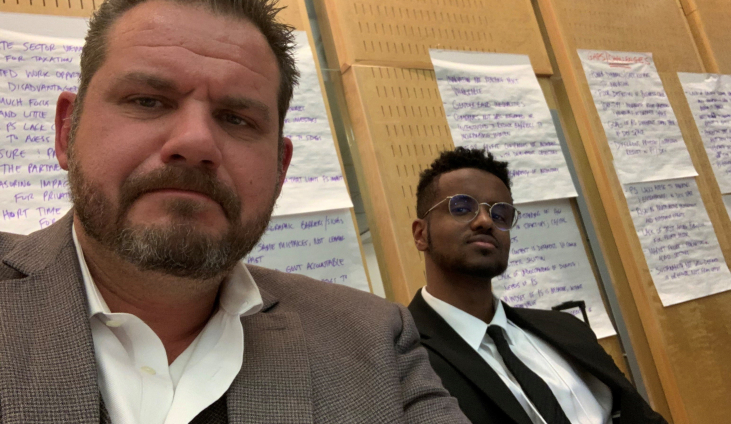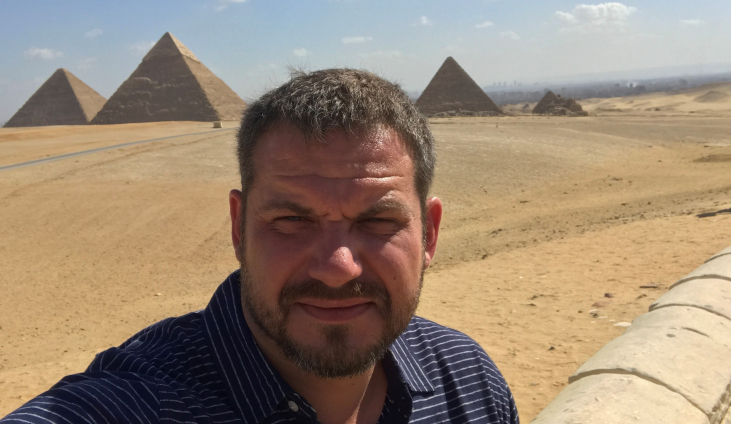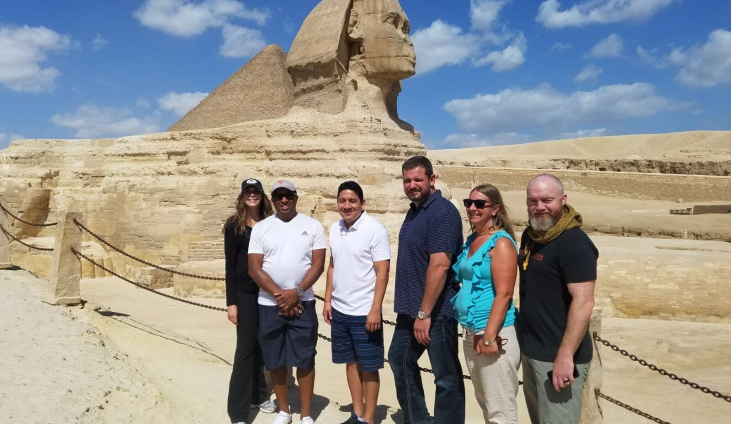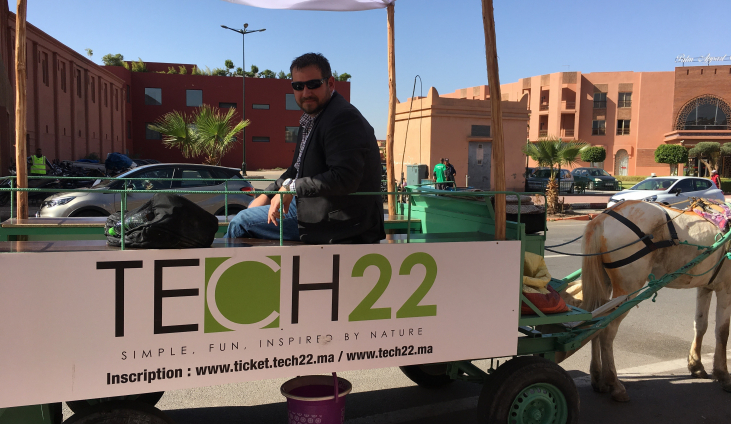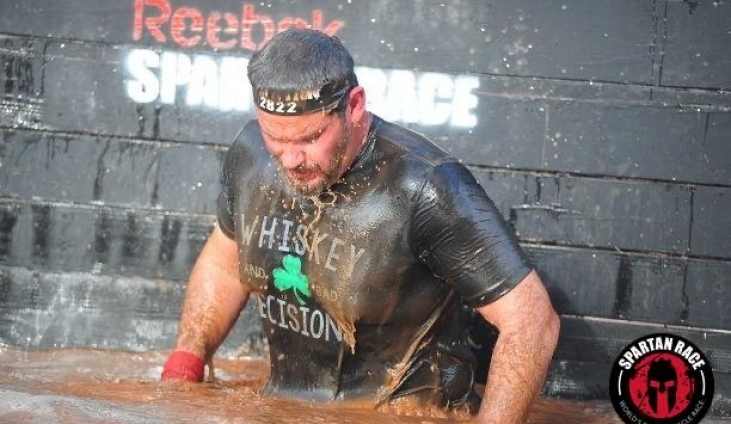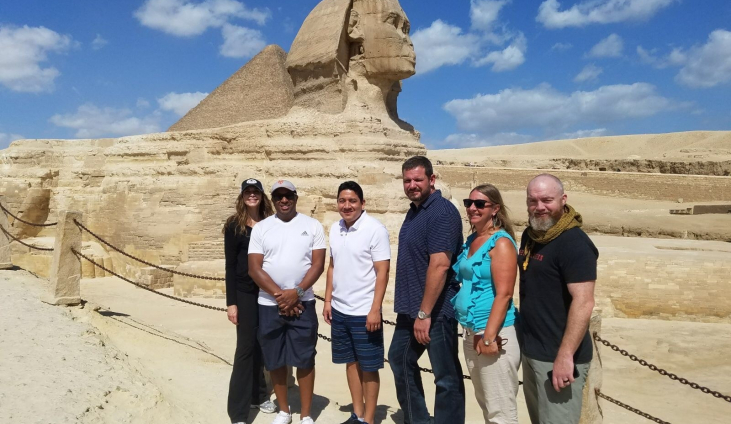Beyond startup support, Heath has:
- an affinity for gifs and the ability to produce them in Teams chats at warp speed
- a penchant for saying y’all, a contraction beginning to seep into the vernacular of the Science Center team
- a passion for smoked meats
Here’s an opportunity for y’all to get to know Heath.
You’ve worked for and advised dozens of organizations around the world on startup support, innovation, and entrepreneurship. What are the common themes you see across these organizations and markets?
As the innovation economy has grown and evolved organizations and the markets they serve have had to evolve too. Startups have become more sophisticated, investors have too. Global market interest of startups have evolved as well. Here are some common themes/misconceptions:
- Every Accelerator/Incubator in the US is moving to operating in the capital space. It is now common to see a “note”/ investment from an accelerator on the capitalization table of a startup. This is both a good thing, getting capital into the hands of companies and a potentially harmful thing by creating a muddy capital table for the startup which could actually hurt future investment. Many groups are trying to figure out the right model of deploying capital to early-stage startups. This space continues to evolve.
- Startups continue to seek funding creatively. The business plan “circuit” continues, which confounds me as I feel we have spent so much time teaching startups how to pitch we often don’t prepare them to be actual companies. I think this trend needs to change.
- The awareness of missed opportunities in supporting innovators from diverse backgrounds is a commonly heard theme. We all need to double down and get more creative in looking at how we, as innovation intermediaries, do not continue to deploy programming across the commercialization and capital continuum which historically and systemically has overlooked founders from diverse backgrounds. We can and must do better. The good news is that the momentum behind this is creating intentionality and I feel this will be a generational shift as we continue in this space.
- Globally issues for startups looking to enter the US market persist. The myth of simply going to tech hubs such as Boston, Austin or Silicon Valley will allow investment and company success to occur continues. Are those locations amazing? Yes, but the fundamentals for a global startup to succeed in the US market are no different than a US startup. A proven, scalable business model addressing an intense market need IN the target market is a must and often the biggest barrier for international startups. Particularly in the life sciences arena, the translation of a business model which works in the home country to the US market is critical. New interventions grounded in reality of continued discovery are needed for global startups to succeed in the US market.
What current trend(s) and/or challenges stand out to you in terms of startup support in 2022?
Just when you thought the pandemic was over... the economy..... Key trends for startups to be aware of:
- Capital Markets will get more conservative, quickly....very quickly. Especially in the early-stage risk capital phase. Average funding rounds, after expanding dramatically over the past several years will likely be reduced in the pre-seed/seed/Series A arena. Founders will need to be more realistic in fundraising expectations as well as more efficient in planned use of funds.
- Startups continue to need assistance in navigating the “noise” of startup programming and need to be more selective in how they engage in programming with an eye towards company building not pitching.
What makes the Philadelphia market unique (and how is the Science Center positioned to address regional challenges and exploit its strengths)?
One of the greatest assets of Philadelphia is the geographical concentration of “eds and meds” in the region. That combined with easy and direct access to a number of markets (NYC, DC, Baltimore...to name a few) within an hour is a major force multiplier for high tech startups locating on the east coast. At the Science Center, by charter we have the ability to assist in the navigation of those geographic assets, making trusted introductions and ultimately providing a home to grow in for startups looking scale on our uCity Square campus.
Last year Science Center announced a fourth pillar focused on
Capital. How does/will this activity overlap with and complement
commercialization activities?
The linkage between capital and what has historically been known as “commercialization” activity has never been so intertwined as it is today. There is critical need for innovation intermediaries to develop systems of support WITH meaningful capital deployment capabilities. We see the refinement of Science Center commercialization work to be more aligned with capital deployment a logical and necessary addition to the innovation ecosystem. We aim to build an engine which can drive economic growth across the region by providing the right intervention (whether programming, capital, or connections) at the right time in the startup journey.
What is your role in supporting innovation ecosystems and startups?
Quietly working behind the scenes, calling the person I think can add the most value to the conversation and bringing them in.
When you’re not supporting innovation ecosystems and startups, what can we find you doing?
Cooking, biking, working out, trying to find a new favorite bourbon or reading.
What is your superpower?
Making meat rubs....and designing innovative new programmatic interventions for startups....and also....meat rubs....

